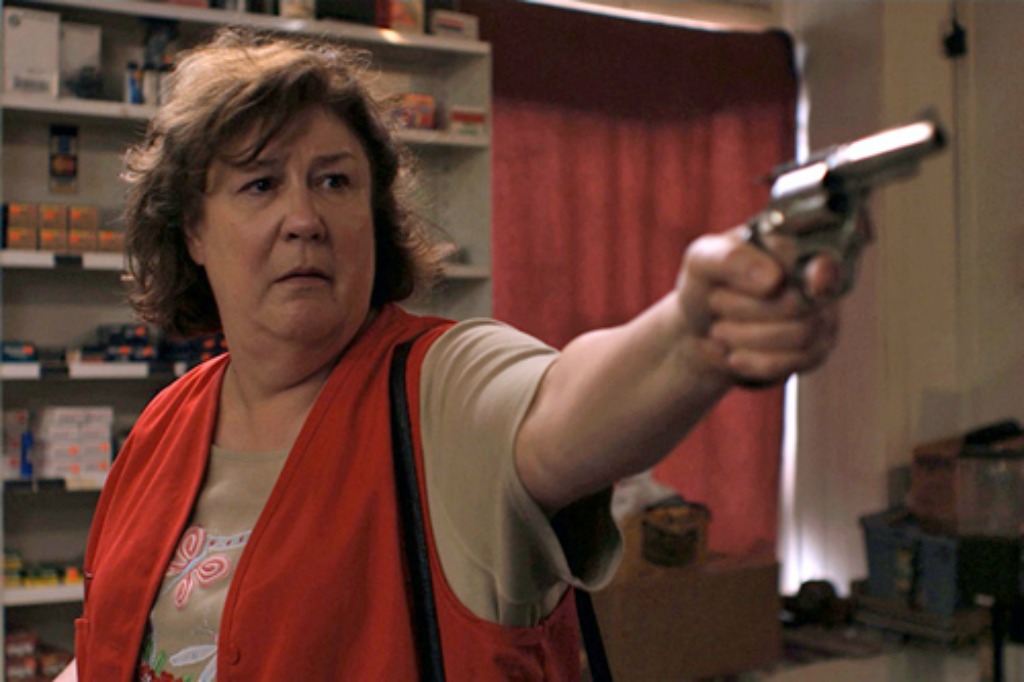Why Supporting Actors Need Your Support
Walk with me a moment through our current television landscape, a veritable buffet. The Night Manager, Dr. Foster, The Night Of, London Spy... What bounty! What gluttons we could be, should we choose to devour the many stories and worlds, incredibly rich, like so much decadent cake, kale chips, or whatever you would feed on until feeling ill. They stretch out over hours, plunging us deeply into various subplots, our focus shifting from one character to the next, ultimately connecting up with the main story and the leads. The best series satisfy us beyond our expectations, and, without the characters surrounding the leads, isn’t it true that the shows would be less… delicious?
An example, if you like: Justified. A series about a rugged sheriff, in Texas, with a body—a nice one—and an accent—Southern—that makes everything that’s serious fun, too. Timothy Olyphant plays the main character, Raylan Givens. It’s important to remember that leads in a TV series, or an evening at the theatre for that matter, have a lot on their shoulders. We need to believe the decisions they make and the actions they take, because, in most cases, they are the audience’s surrogate and carry us full-term through the experience. In Justified, over and over again, Raylan meets characters who challenge him, and he either wins or finds he’s met his match. He doesn’t get to lose because the series needs him… well… alive for its continuance.
Some of Raylan’s most memorable scenes were opposite Margo Martindale’s Mags Bennett. Martindale won an Emmy for Outstanding Supporting Actress, as well as a Critic’s Choice Award for Best Supporting Actress playing Mags, a mafia mama, the big boss of a successful family drug operation. Her scenes could have been two minutes or twenty, I have no idea, but her time on screen would fly by, leaving me hungry for her next appearance, for her next move. I would look for her through every one of Raylan’s actions: When will he need to see her again? Need her, Raylan, need her! Watching her scenes was a master class in acting, the kind that crosses mediums, as what she’s doing, if adjusted slightly, would work on stage as well as it does on screen. And, sadly (spoiler!), when her character died (sorry, but you should watch to see how!), I lost interest in the series. I realized, as my audience-heart broke, I was watching the show to see Mags, a supporting character. I didn’t really care about Raylan without her there to play with and push him.
A show, any show, on screen or stage, can only sustain our interest if all of the characters and the world of the story are compelling. When they are, we buy in. We watch the lead for the main action and we watch the supporting characters for everything else: their extremes in behaviour, the ways they surprise or delight our hero, and how they propel the story forward. The lead can’t give us those goods without a great deal of expositional setup. And, in the case of Justified, I would argue that those characters are his raison d’être; they keep his journey interesting. And without them? Well, Raylan is Tim O. in a sheriff costume with that body and that accent. Still nice, sure, but not worth hours of viewing.
Now let’s talk about the live action, the living, breathing stories we get to feed on in the theatre. Toronto, in particular, offers a delectable array of dishes to devour. And, as is the case with Justified, I would posit that the supporting characters make the lead and the story. Take the success of Monica Dottor’s show The Other. The supporting characters in that show were absolutely vital to understanding the volumes of story spilling out of her character’s mouth. One could say that the performers on stage with her were an ensemble. Yes, they were, but I would say that the simple word “ensemble” dilutes my audience experience. There were a couple of them in particular, Lara Ebata and Natalie Fullerton, whom I watched with eagle eyes when they were inside of an action that was supporting the story. Both were incredibly expressive and beautifully keyed in. It’s not that the others weren’t, but on the night that I saw the show, Lara and Natalie captivated me in a spellbinding way that set them apart from each other and the rest of the group. Their performances, both in moments of solo action and simultaneous with the group, were arrestingly clear. Through them I was led further into that incredibly dense piece. I would like for them to be celebrated for that vital work.
The same is true for We Are Proud To Present…, a story kicked off by an individual, but told by a group of artists. The set was simple, the ideas historically and politically charged, the story staged naturalistically. Believability was key, bourn on the backs of the performers both individually and as a group. And just because those actors were successful in being both the supporting cast as well as the ensemble, they should not be judged by one category that oversimplifies their work.
How can we combat this problem? I suggest turning to the Dora Committee: Please add featured actor awards to the Indie Theatre category, and let me echo Phil Riccio’s call to bring back the featured actor awards to the General category!
We live in a time of titular leads, where these characters start or end the action, or their story is the one threaded through the whole show. But they don’t necessarily do more than the rest of the cast, nor can they exist without that specific world around them: the characters who provide the opportunities and obstacles for the leads to strut within or struggle against. We lessen the import of our work on an international and historical scale without that category, as supporting roles have always been a large part of what is remembered of classic tales. Take Shakespeare: people find out about who is playing Macbeth, Hamlet, Juliet, but they marvel at who will play Banquo, Claudius, the Nurse.
As Dylan Trowbridge, a celebrated Toronto-based actor and director, once said, “If we are aspiring to be one of the world’s great theatre cities, we need a system that recognizes excellence.” I would add: When we recognize excellence, we must trumpet the cause, as it arrives not by accident.
If we agree to award the sparkle of the lead, then we must also acknowledge the source: the light within each supporting performer. It is imperative that we celebrate them all because the richness of a meal isn’t a list of ingredients, it’s the balance of flavours that makes us want more.









Hey Everybody..
Apply for Finance..
$5,000 and above. at 2% rate………